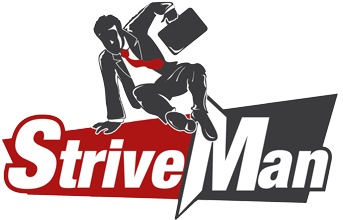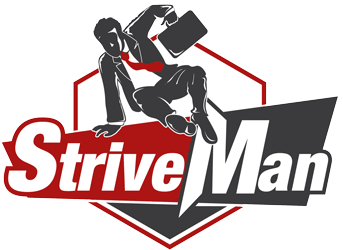“You will find the key to success under the alarm clock.”
-Benjamin Franklin
A Wake-Up Call
My iPhone alarm clock goes off at 6:30 a.m. I pop up like a disoriented jack-in-the-box, and in one swift, unconscious motion, I grab the phone, tap snooze, and hop back in bed. The phone comes with me—it is now my willing hostage. Fifteen more minutes? “No problem,” says the iPhone. Another fifteen minutes? “You got it.”
“FUCK!” I sit up in bed in panic mode after realizing that it is now after 8:00 a.m. After showering, shaving, and getting changed, I leave my house. So begins my stressful race against time to avoid being late to work. What a terrible way to start the day.
Except this has been my routine for the past few years. My poor sleep habits, probably formed during college and law school, seemed to have followed me into my career.
I knew that things had to change when I kept seeing the same articles pop up on the news stating that lack of sleep causes brain damage, depression, weight gain, and other health disorders. Moreover, I felt the effects more and more, often falling asleep on the couch while in the middle of something.
In fact, I previously tried to form the habit of going to sleep early, getting a full night of rest, and waking up early. I was always so ambitious, thinking that I would easily wake up early and do cool things like work out. However, I always failed because did not have a plan beyond setting my alarm clock early and going to sleep with the best intentions.
This time was different. I had a plan, and the habit stuck.
The Foundation of Everything We Do
StriveMan is going to take you on a life-changing adventure. But if you’re going to strive to achieve anything remotely worthwhile, then you need to start by getting your personal shit together. You need to establish a strong foundation to build upon.
And sleep really is the first building block in that foundation. We spend about one-third of our lives sleeping, and how much sleep we get trickles down into everything that we do. If you don’t get enough sleep tonight, then you are going to have a less-than-ideal day tomorrow—I guarantee it.
In addition to the scary health risks often covered by the media, here are a few reasons why you should follow the “early to bed and early to rise” approach.
Stress-free Start to Your Day
Benjamin Franklin said that early risers do not have to deal with the “unpleasant dread of losing a race against time.” This is definitely true. Instead of waking up, rushing to get ready, and speeding like a maniac to work, I can now calmly get out of bed, work out, eat breakfast, and leave early for work. It’s a much better start to my day that trickles down into everything that I do.
Better Focus and More Productivity
It’s amazing what a proper night of sleep can do. I used to feel scatterbrained at work, unable to focus and checking the clock every other minute to see whether it was time for lunch. It’s hard to prove quantitatively, but I definitely feel more focused, motivated, and productive while at work. I am also more productive in the sense that I can get a lot accomplished in the morning. It’s a nice, quiet time during which I can work on side projects.
Eat Breakfast
Waking up early gives you time to eat breakfast and work out. Tim Ferriss, author of The Four Hour Body, recommends eating 30 grams of protein within 30 minutes of waking up for weight loss and overall health. Waking up early allows you to do that, whether by protein shake or full-blown breakfast.
Increased Fitness
For me, working out after a long day of work followed by a 45-minute commute was a challenge. I found myself completely unmotivated to work out even though my gym was in my basement! It was literally difficult to find the motivation to walk downstairs—sad. I now finish the workout in the morning before work, giving me a stress-free night that I can spend with my fiancée.
Early to Rise: Tips for Waking Up Early
The most interesting thing about Benjamin Franklin is that he was candid about how difficult it was to get in the routine of going to sleep early and waking up early. He basically said that it is not an easy habit to adopt and that it takes a lot of work and getting used to. But once you do form the habit, the benefits will outweigh the discomforts.
Here are the critical tips that helped me form the habit of going to bed at 10:00 p.m. and waking up at 5:30 a.m. It’s not easy, but it is worth it.
Do Not Worry About Going to Sleep Earlier… at First
It may seem counterintuitive, but when you are first trying to form the habit, don’t start by trying to fall asleep early. If you were like me, then you will be trying to undo years of poor sleeping habits. Lying in bed while stressing about falling asleep is not going to benefit you.
After a few days of consistently waking up early, your body will start to demand sleep. If you can resist the temptation to take naps, then you should have no problem falling asleep early. After that, you can make going to bed early part of your plan.
Don’t Be Too Ambitious—Focus Only on Waking Up
What we are doing is essentially changing our behavior, and changing one’s behavior takes time and focus. In fact, it is very difficult to change more than one behavior at a time. This is why so many New Year Resolutions fail—people resolve to adopt many different behaviors, get overwhelmed, and give up.
Instead of promising that you will wake up early and do things like work out, just focus on waking up early for the first few weeks. Get up, shower, eat breakfast, and watch the news or your favorite TV show. You can add more ambitious things into your morning routine after you have mastered the habit.
90 Minute Cycles with Sleep Cycle App
It turns out that the length of sleep is not as important as the number of 90-minute sleep cycles that we complete.
As explained by Jeanie Lerche Davis at WebMD:
Sleep is prompted by natural cycles of brain activity and consists of two basic states: rapid eye movement (REM) sleep and nonrapid eye movement sleep, which consists of stages 1 through 4. Each cycle lasts about 90 minutes. You do that cycle several times a night, you’ve had a good night’s sleep. Anything that interrupts that pattern will cause sleepiness the next day.
In other words, we have to start thinking of our sleep in 90-minute cycles: 1.5 hours, 3 hours, 4.5 hours, 6 hours, 7.5 hours, and 9 hours. So if you wake up in the middle of a sleep cycle, you will feel sleepy and groggy. It may seem counterintuitive, but sleeping for 7.5 hours will make you feel better than sleeping for 8 hours or even 10 hours.
This is why I recommend going to bed at 10:00 p.m. and waking up at 5:30 a.m. This is exactly 7.5 hours, or 5 sleep cycles.
The problem is, unless you are capable of falling asleep immediately, you will not know when exactly you fall asleep and for when to set your alarm clock.
The Sleep Cycle App solves this problem. You just plug your phone into your charger, set a general time for when you want to wake up, and put it in the corner of your bed while you sleep. The app will monitor your movements and sleep patterns and will wake you up at the end of your sleep cycle. Have an Android Phone? Try Sleep as Android.
I recommend using the app with AirPlane mode on to avoid interrupting sleep with calls, text messages, or emails. This also helps to minimize any excess radiation that your device might give off when active.
Multiple Fail-Safe Alarms
The Sleep Cycle App should be your primary alarm clock; however, you should not rely on just one alarm clock. If I set my Sleep Cycle App to go off around 5:30 a.m. (which will ring when I am coming out of a sleep cycle), then I will also set alarms for 6:00 a.m., 6:30 a.m., 7:00 a.m., etc.
But relying solely on phone alarm clocks is not ideal. It is easy to quickly grab your phone and hit snooze or turn the alarms off completely while in an unconscious state.
This is why I recommend Clocky, The Alarm Clock on Wheels. This alarm clock literally rolls off your nightstand and starts running away to prevent you from hitting the snooze button. Very innovative, and highly recommended.
Get Your Feet on the Ground and Drink a Protein Shake
Benjamin Franklin’s best tip for waking up early was to muster all of your energy to immediately get out of bed and get your feet on the floor. After waking up, he said that “if you allow yourself to parley a single moment, sleep, like an armed man, will probably seize upon you, and your resolution is gone, your hopes are dashed, and your habits destroyed.”
I learned that I could follow the advice of getting my feet on the floor if I had an immediate obligation to fulfill that would also help wake me up. Something that I had to do immediately—something to look forward to.
I found great success with a protein shake kept by my nightstand. I prepare it the night before and keep it cold by putting it in a cooler lunch bag with an ice pack. When the alarm goes off, I immediately get out of bed and go right for the protein shake.
There is something about this cold, delicious obligation that really motivates me to get up in the morning. Plus, I am killing two birds with one stone by immediately consuming 30 grams of protein within 30 minutes of waking up. This was a critical part of my wake-up plan.
I recommend Optimum Nutrition 100% Whey Gold Standard, Double Rich Chocolate, 5 Pound because it is the healthiest and most cost effective protein I have come across. Plus, it mixes well so you are not left with clumps of protein floating in your drink.
For a shaker bottle, nothing beats the Blender Bottle. This bottle mixes the protein well and will never leak.
Don’t Abuse Yourself
In law school, I was always incredibly paranoid about sleeping through a final exam, failing to wake up for an early job interview, or dozing through an important class. When I absolutely had to get up, I would resort to punishing methods: sleeping with the lights on, sleeping on the floor of my room, or sleeping on the couch and asking my roommate to slap me awake. Fortunately for me, or unfortunately for him, my roommate never got to slap me awake, but the threat of having that happen was enough to wake me up.
These methods should be avoided at all costs. The point of this endeavor is to form a healthy sleep routine, which will help you feel rested and more productive, thereby improving every area of your life. Relying on these methods does not solve the problem—they are just unhealthy crutches.
Early to Bed: Tips for Falling Asleep Early
In my experience, the habit of waking up early for two days straight was enough to help me to fall asleep at a proper hour. However, there are also several tips on falling asleep and staying asleep that are important and worth noting.
Use a Fan or White Noise Generator to Stay Asleep
Nothing is more frustrating than successfully falling asleep early only to be awakened by some random noise. This was a problem for me, and it seemed that I was more susceptible to this when I went to sleep early.
I solved the problem by simply turning on a small fan when I went to sleep. The light noise from the blades circulating was enough to drown out any small noises that would have previously awakened me.
You can achieve the same affect with a white-noise generator, such as the LectroFan – Fan Sound and White Noise Machine, which features a variety of sounds that can be set at different volumes and pitches.
Avoid Bright Lights at Night
Research shows that exposure to light at night can suppress the production of melatonin, which is a hormone produced by your body that helps regulate sleep. Melatonin peaks at night, completing the circadian cycle by inducing sleep. In other words, if you interrupt melatonin production at night, then you won’t sleep well and won’t get the most out of your sleep.
It is difficult to go completely dark by avoiding all exposure to lights before bed. We are not cavemen. But you can take small steps that will make a big difference. For example, a few hours before bed, instead of leaving all of the lights on, try shutting off the brightest lights, such as any overhead lighting, and turning on a small lamp instead.
Ideally, starting a few hours before bed, you should avoid exposure to devices that emit bright blue light, such as TVs, computer screens, tablets, and smart phones. At the very least, you should dim the brightness on your smart phone at night, and you can even install free software on your computer that will automatically adjust the color setting and brightness based on the time of day.
When you go to sleep, your bed room should be completely dark. Shut the blinds and curtains, and cover up any small lights in your room as even small electronic lights can disrupt your sleep. Try to form the habit of sleeping with your TV off because the bright glow will absolutely interrupt your melatonin production. Instead, replace watching TV in bed with listening to podcasts or a white noise generator.
Once you go dark, you need to stay dark. If you wake up in the middle of the night, the worst thing you can do is turn on the light while going to the bathroom. Instead, consider investing in a low-intensity red LED night light because red light has a negligible effect on melatonin.
Lower Your Body Temperature
Decreasing your body temperature seems to trigger or induce the sleep process. This means that you should not exercise before bed time as exercise raises your body temperature and increases your metabolism. Instead, you should exercise in the morning, afternoon, or immediately after work.
Similarly, you should experiment with different bedroom temperatures. Research suggests that keeping your bedroom between 65 degrees Fahrenheit and 70 degrees Fahrenheit is best for sleep.
Some people claim that a warm shower before bed helps them get to sleep, which may be attributable to the cooling effect after leaving the shower (as you know, when you step out of a warm shower, it is always freezing). Other people claim that cold showers are the way to go as they do not raise your body temperature before the cooling starts. I don’t rely on showers before bed to help me get to sleep, so if you want to try this tip, then I suggest that you experiment with both hot and cold showers to see which works best for you.
Today
My alarm clock goes off at about 5:30 a.m. I promptly wake up, get out of bed, and drink a protein shake, which I mixed the night before and kept cold in a lunchbox on my nightstand. I shut off my fail-safe alarm clock before it even rings, and I am ready for the mother-fucking day.
I walk down to the basement, where I complete a quick thirty-minute workout. Afterwards, I shower, shave, and get ready for the day. I make some eggs, have some coffee, and leave early for work. A much better start to everything that will follow.








1 comment on “Becoming a Morning Person: Tips for Waking Up and Going to Bed Early”
Best Free App I have invested in…It really helped with my Sleep cycle as well…